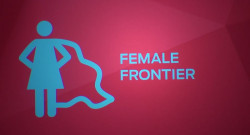Female Frontier pt 4: John Gerzema – Further with Ford

Part 4 in this session called Female Frontier, we listen to John Gerzema – author of the book “Athena Doctrine”. He and Michael D’Antonio went to 13 countries and interviewed 64,000 people to find out new ways of leading.
John talks about people like Silvia Lali, who runs the womens’ house in Lima, Peru. She was fighting domestic abuse of women. This is a story about corruption and what she did to fix the problem.
John talks more about the feminine values that could be the operating system of the 21st. century.
Subscribe to Geekazine:
RSS Feed - Via YouTube
Twitter - Facebook
- Tip Me via Paypal.me
- Send a Tip via Venmo
- RSS Bandwidth by Cachefly Get a 14 Day Trial
- Be a Patreon: Part of the Sconnie Geek Nation!
Reviews: Geekazine gets products in to review. Opinions are of Geekazine.com. Sponsored content will be labeled as such. Read all policies on the Geekazine review page.
Transcript:
It is fabulous. Thank you so much, I mean, you think about the accomplishments of these three amazing women, we’re gonna talk very briefly about what is happening societly at large, that it’s starting to favor what we believe is an emerging feminine age. Can I kind of go through this pretty quickly, so we can get into the penal, as she mentioned, I wrote this book, coauthored the book with Michael D’Antonio, “Athena Doctrine”.
And what we looked at, we conducted research all over the world, we did research in 64 thousand people in 13 countries. But the other think that Michael and I did, is we traveled all over the world. I think I’ve had a hair on when I started this project, but we went to 26 cities, we met amazing people, we saw start-ups enterpreners, we met CEO’s, all kinds of really amazing people. We talked with world political leaders, we actually even spent time with president of Israel, Shimon Peres.
And he said something to me that I’ll never forget, he said: “We’re in a new world with many old minds.” We’re in a new world with many old minds, he said the task of a leader is to adapt yourself. And what he was talking about, was this sort of rise of this social economy, globalization, this sort of inter-dependency that we all have today, in this desire and belief that the leadership hasn’t really caught up. So that’s what this book is really about, it’s sort of emerging rise of feminine values in leadership.
And we saw it, because we saw a lot of wide spread disapproval around the world. 51 percent of people though that life, question whether life would not be better for their children rather than themselves, picking up again with Jennifer who’s talking about this macro sort of pessimism that exists. Concern about powering corporations, is a dominant concern around the world. Also, the fact that this question of empathy in our leaders, do our leaders actually care about us, our citizens?
76 percent of people disagree. And then, they even question society’s basic fairness. Over half the people really are concerned, three quarters they don’t think things are really stacked up. And what we saw as we traveled, and we saw in our data is that, there was sort of this, sort of global referendum on un-feathered testosterone. Alright, this satisfaction with the conducted men in my country. And, what was really fascinating to us, that his wasn’t about men versus women, it was actually people, all of us, just frustrated with the way things are. The way business is conducted, the way politics are conducted, and sort of the ways societal norms are sort of stacked up.
And so, you know, we saw it was really interesting, you know, in South Korea and in Japan, 80 percent of the men were frustrated with the conduct of men. That should point out that Canadian men here must be doing something right, ‘cause we have the lowest levels.
Canada, let’s go!
Yeah, as you look around the world, two thirds of people think the world would be a better place if men thought more like women. So, this dominant thing got us really interested so we went as researchers, and we actually went out and conducted a survey. And what we did, is we asked half our sample, 32 thousand people, to take a 125 human traits, and just asked them to tell us what they thought, have they thought they were more masculine, or feminine, or neither.
So that was half of our sample. The other half of our sample, we asked them about leadership. We said, take these very same traits, this time no mention of gender whatsoever, tell us what would make for more effective leaders in today’s society. What would make us happier as a culture, what would make us more successful, and what we did as researches, we’ve modeled this data and we’ve started to see that what people around the world are looking for, are more feminine qualities in our leadership.
Right, first of all it was really interesting to me, as a researcher, aggression, pride and independence were the least co-related to the ideal modern leader. When in fact, what they’re looking for was more expressiveness, more patience, more flexibility, more loyalty, more collaboration and more passion. Now, does it mean that you don’t nearly also have to be resilient at times, and be aggressive at times, that clearly goes with the territory.
What people are saying is that we need leaders that are gonna be more new [Inaudible] [0:04:22] to lead in this new era. So what we did was, we started to kind of divise, and see that there was sort of tendence that were guiding sort of new-aged, what we called the “Athena leader”. And they were sort of skills that people were either building it into their management teams or they were buildng it into their own profiles, you know, as a way to sort of thrive.
And I’ll talk about really [Inaudible] [0:04:44] let’s talk about vulnerability as a leadership trait. So one of the guys that I met, I was in Berlin and I met this guy, his name is doctor Ijad Madisch. Has anyone heard of Researchgate, researchgate dot org? Well so, he was a virologist, he is a virologist, he’s gotta PhD in virology, and he kept getting stuck at his experiments at Harvard. And when he asked the colleagues for help, then they said, “You look ridiculous. You look foolish. You should have the answer”. And he thought, “This is the ridiculous idea, I’m just asking for help, I’m being vulnerable and open.”
So what he did is, he decided to go to Berling, he created Researchgate, which is the first social media, sort of Facebook, for scientists. You guys, today he has 2.9 million scientists collaborating on 800.000 different research projects. And ask him, “What do you wanna do with this, he goes “I wanna crowd source the Nobel prize. And I want the credit’s to flow like they would at the end of a movie.” Right, but so the whole idea here is, you know what, scientists, instead of being in the cubicles, let’s work together, let’s be open about what we don’t understand, and let’s find ways to collaborate, to really further progress.
We also met the highest ranking woman in the Israeli defense force, she’s actually the highest ranking military woman on the planet. Her name is major general Orna Barbivai. And I asked her how she approached military strategy, and she said, as a mother. She talked about mothers having this acute sense of ability to sort of, game out multiple scenarios and anticipate conflict before it happens. So, one of the things she did is, she brought women for the first times in Syria and Gaza strip, and she also awarded soldiers for de-escalating conflict. This types of strategies we sort of saw all over the world, we saw in, again in Berlin, Leo Riski is a cultural attache of the Felleshus. Felleshus is Danish for “house for everyone”. This is a first shared embassy in the world.
It’s the home of the five Nordic nations, of Denmark, Norway, Iceland, Sweden and Finland. And again, what they’re trying to do in the diplomatic context is, to think about working together to sort of solve their common challenges. It was interested to me as I’ve noticed as I’d left, directly across the street was the Syrian Embassy that was shattered and covered in graffiti. So this open collaborative models were seen in politics, we’ve seen them in business, but we’ve also seen them in pretty interesting ways.
This is Maria Zewe, she’s the director of the Swedish tourism bureau, and she does her own research, and she did a research around the world, she said, let’s find out from people what do the people think about Sweden. And the top two things that came back about Sweden were blond people and Abba. Kind of a challenge if you’re the director of tourism, ‘cause if that’s everything there is to know about Sweden, I don’t need to go and visit.
You know, she decided, she went to the government, if you guys are on Twitter, follow at Sweden, it’s a tremendous social experiment, she gave up basically, government gave up the Twitter account, a national Twitter account, to one Swedish citizen to Twit on behalf of the entire country.
And it’s still going on today. To get that, really ungarnished look of what’s happening. [Inaudible name] incredible young man, he was struck by what happened with earthquakes and the tsunami two years ago in Japan. The difference with this young guy is that he could write code, and he created an Arabian B to basically help displayed citizens find housing with other people who had extra rooms to share. He moved 12.000 Japanese families around in three weeks.
So guys, this is what’s [Inaudible], this is the power, all this stuff is bubbling up from underneath and it’s creating a far more organic and fast moving way of leading and it’s democratic and open to far more people than it has been in the past. And then lastly, Silvia Lali. Silvia Lali runs the women’s house in Lima, Peru. And she’s an incredible example of creativity, ‘cause she was fighting domestic abuse against women, and the challenge of proofs that the police was turning blind eye toward the problem. Far and part, because the police force at the time was all male. So, she told me she got really ticked off and decided to create her own, private, all women’s police force.
Guess what happened, they were so competent that legislator integrated them with the men, and corruption dropped by 32 percent. The point here is, this incredible lateral creativity that comes by putting your whole self into challenges, by not conforming to the traditional sort of way that things are. And that’s really what we saw, we saw this ascendency of these feminine values that we really believe are the operating system of the 21st century, they’re going to create a far more sort of exciting platforms as we start to think about problem solving in the future



